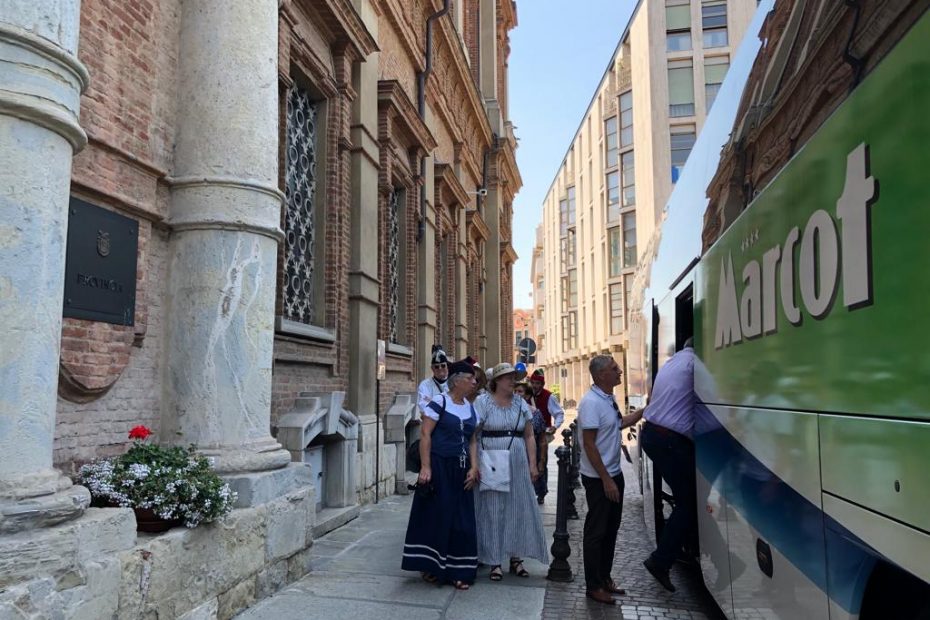Cultural tourism defines “any travel of people motivated by cultural purposes (study holidays, visits to monuments and archaeological sites, participation in cultural events, pilgrimages). Cultural tourism is also the pleasure of embracing autochthonous identity and lifestyle “. The definition spread by the OMT (World Tourism Organization) is congenial to the recent event that took place in our Alexandrian area, summarized in the following story. French tourists seduced by the museum of the battle of Marengo and by the charisma of Alexandria: it happened to the 35 members of the “Les Vosges napoléoniénnes” association last week. The city tour through the sites linked to the Napoleonic epic started from the Cittadella. The departmental delegation was accompanied by the councillor Maurizio Sciaudone (Polo di Marengo – Province of Alessandria) to the eighteenth-century fortress strengthened by the Commander to build the greatest French defensive structure in the Po Valley and the essential logistic hub for military operations in Italy. The President Enrico Bussalino welcomed the group at Palazzo Ghilini, residence of Napoleon I and, thus, renamed the Imperial Palace.
The visit to Palazzo Cuttica, formerly the Prefecture of Marengo, preceded the refreshment at the Fiscala estate: here the delegation could taste local dishes in the residence, that the Count Pietro Civalieri, Honour Guard of Napoleon I and Knight of the French Empire, benefited from as well.
The journey through the history of the battle of Marengo then continued in Torregarofoli, Napoleonic headquarters during the period of the conflict. The Vosges visited also the Piovera castle, where they could observe the black painted wall, in order to adhere to the mourning provoked by the death of Bonaparte. The group of tourists was also attracted by the model of the Grande Bataille (14 June 1800) and by the corner shop at Marengo Museum reception.
The tradition has been passed on: the temporary manager Efrem Bovo pointed out to tourists the huge plantain planted by the “Generalissimo” to honour the memory of nearly ten thousand people who died on the battlefield or in consequence of incurable sepsis.
The city centre of Alexandria was also visited by the delegation to carry out the ritual shopping: this episode, unrelated to the commercial park built in the extra-urban area, is remarkable and involves the traditional sales network. This type of purchase evokes the synthesis of the talk “Murat, peace and market” set up in May at the international cultural “Polo di Marengo”: the driving force for the local economy based on the connection between culture, tourism and work.
